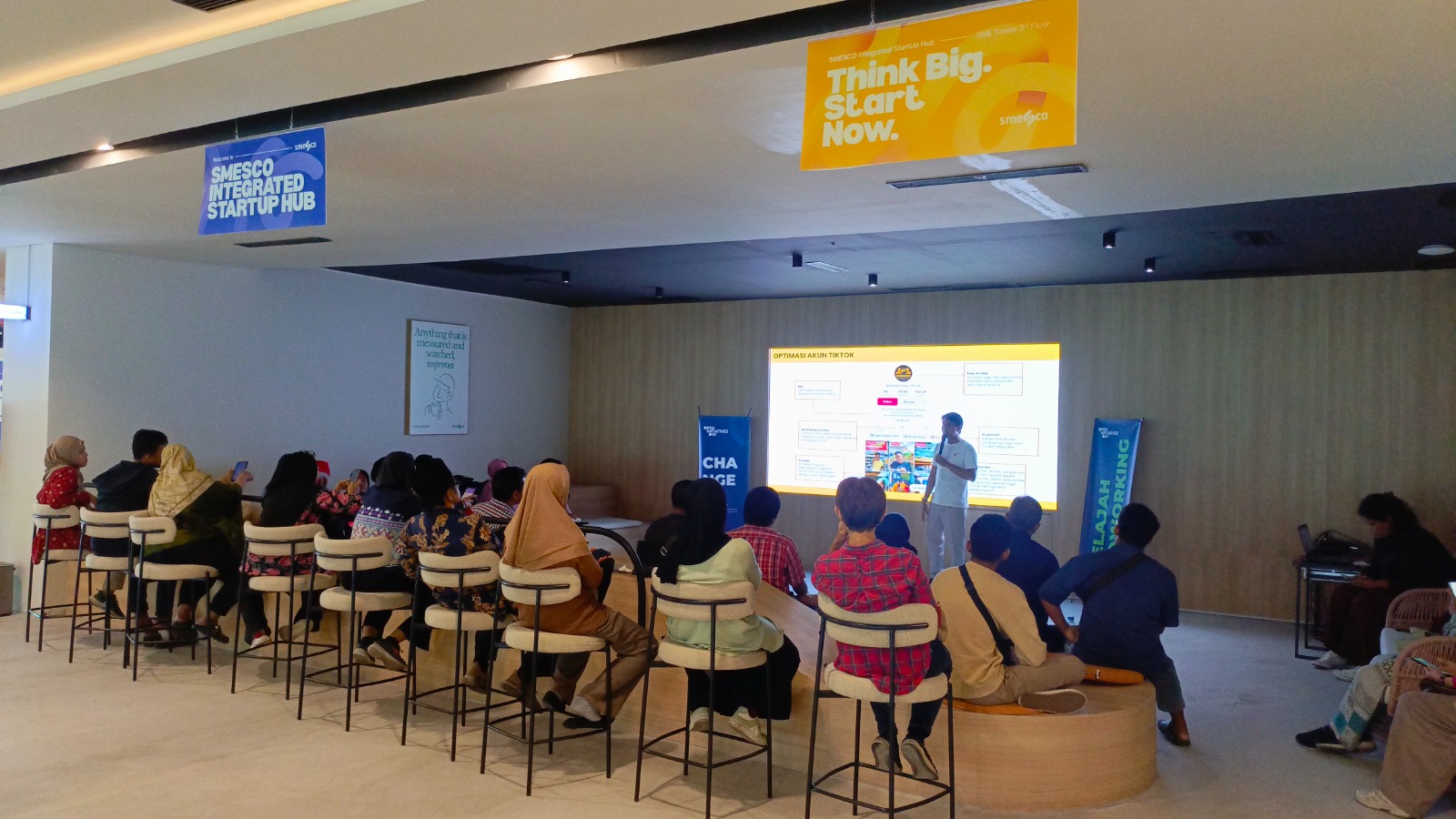The entrepreneurial landscape in Indonesia continues to expand as new platforms emerge to support small businesses and startup founders. One of the latest initiatives making headlines is the Smesco Startup Hub, designed to help entrepreneurs grow through innovation, collaboration, and access to resources. This initiative highlights Indonesia’s ongoing efforts to strengthen its small and medium enterprise (SME) sector, which remains the backbone of the country’s economy.
According to KompasTV, the Smesco Startup Hub is positioned as a platform to nurture new ideas, build partnerships, and create long-term value for entrepreneurs across the country. By focusing on innovation-driven support, the program seeks to equip Indonesian businesses with the tools they need to thrive in a competitive global marketplace.
The Role Of Smesco Startup Hub In Entrepreneurial Growth
Indonesia has long recognized the importance of small and medium enterprises in shaping its economy. SMEs account for over 60 percent of the nation’s GDP and provide employment opportunities for the majority of the workforce. However, despite their significant contribution, many entrepreneurs face barriers such as limited access to financing, digital tools, and mentorship.
The Smesco Startup Hub aims to close this gap. By offering a collaborative space for startups and entrepreneurs, the hub enables networking, access to resources, and opportunities to engage with industry experts. This ecosystem is essential for helping new businesses overcome early challenges while also preparing them to scale sustainably.
More importantly, the program supports entrepreneurs who are innovating in various sectors, from agriculture and manufacturing to digital technology and creative industries. Through workshops, training programs, and collaborative events, the hub creates a foundation for long-term entrepreneurial success.
Innovation As A Key Driver Of Entrepreneurial Success
One of the standout aspects of the Smesco Startup Hub is its emphasis on innovation. Rather than focusing solely on financial support, the hub encourages entrepreneurs to develop new ideas that can address real-world problems. This approach reflects a broader shift in Indonesia’s economic policy, which emphasizes innovation as a crucial driver of national competitiveness.
Innovation can take many forms. For example, agricultural entrepreneurs can leverage technology to improve supply chain management, while digital startups can use artificial intelligence to enhance customer experiences. By facilitating innovation across multiple industries, the Smesco Startup Hub helps ensure that Indonesian entrepreneurs are not only keeping pace with global trends but also setting new ones.
In addition, the hub fosters a culture of collaboration. Startups often struggle in isolation, but with access to peers and mentors, they can accelerate their learning curve and avoid common mistakes. The Smesco Startup Hub provides precisely this environment, making it easier for entrepreneurs to share knowledge and build sustainable businesses.
Building A Supportive Entrepreneurial Ecosystem In Indonesia
Beyond innovation, the success of the Smesco Startup Hub lies in its ability to build a supportive ecosystem. The initiative connects entrepreneurs with government institutions, private investors, and academic partners, creating a network that can nurture ideas from conception to commercialization.
This approach mirrors global best practices in startup development, where hubs and incubators serve as bridges between entrepreneurs and larger institutions. By integrating Indonesia’s local strengths with international knowledge, the hub positions itself as a key player in shaping the future of business development in the country.
The role of government-backed initiatives like Smesco is particularly important. In many emerging economies, private venture capital is still limited, and entrepreneurs struggle to find early-stage funding. By providing both financial and non-financial support, Smesco Startup Hub fills a critical gap that allows more entrepreneurs to pursue their ideas without fear of failure.
Furthermore, the initiative contributes to Indonesia’s ambition to become a regional leader in entrepreneurship. By cultivating innovative startups today, the country is preparing itself for greater competitiveness in Southeast Asia and beyond.
Challenges And The Road Ahead For Smesco Startup Hub
While the Smesco Startup Hub offers clear benefits, it must also address several challenges to achieve long-term impact. First, accessibility remains a concern. Entrepreneurs in rural areas may find it difficult to connect with the hub’s resources, particularly if they lack reliable digital infrastructure. Ensuring inclusivity will be critical to the initiative’s success.
Second, sustainability must be considered. Startup hubs often face the challenge of maintaining relevance over time, especially if initial enthusiasm fades. To counter this, Smesco must continuously adapt its programs to match evolving industry needs, whether in digital technology, green economy, or creative industries.
Finally, measuring impact will be key. Beyond the number of startups supported, the hub should track how its programs contribute to job creation, revenue growth, and overall economic resilience. Transparent reporting will help build trust with entrepreneurs and stakeholders alike.
Despite these challenges, the Smesco Startup Hub represents a promising step forward for Indonesia’s entrepreneurial ecosystem. By focusing on innovation, collaboration, and ecosystem building, it provides a model for how emerging economies can support their next generation of business leaders.
Conclusion
The launch of the Smesco Startup Hub signals Indonesia’s commitment to fostering innovation and supporting its entrepreneurs. With SMEs playing a vital role in the national economy, creating platforms that provide access to resources, mentorship, and collaboration is essential.
As the hub continues to evolve, its success will depend on its ability to remain inclusive, adaptive, and impactful. If executed effectively, it could become a cornerstone of Indonesia’s entrepreneurial ecosystem, driving sustainable growth and positioning the country as a hub of innovation in Southeast Asia.
For Indonesian entrepreneurs, the Smesco Startup Hub is more than just a support system. It represents an opportunity to innovate, connect, and build businesses that can contribute to both local communities and the national economy.
Read More






 Saturday, 28-02-26
Saturday, 28-02-26







